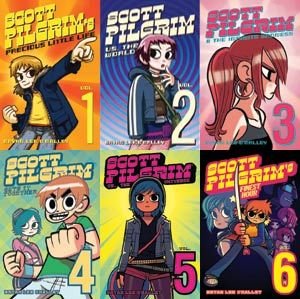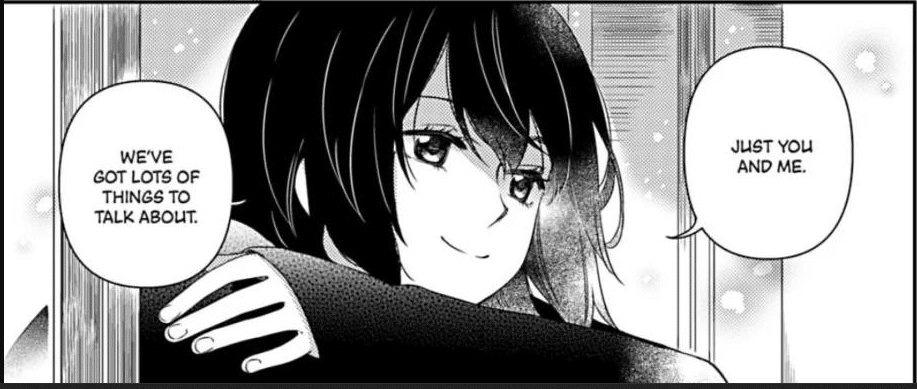Alter Ego is available from your local bookseller or neighborhood library.
Holy cannoli do people love getting pedantic about definitions online. And offline, too, I suppose, but online is where it really sticks in your craw. I'm as guilty as any of us, wandering in circles for 2,000 words before ending with a big ol' shrug anyway.
( Spoiler Alert: you're getting more of that today. )
But it's also just fun to poke and pull at these threads to see where they unravel. And, to an extent, I do think that it's genuinely useful. To quote my mother (who was actually talking about Latin at the time, but still):
“Words Mean Things”.
Which I adore as a turn of phrase, because it's more-or-less the whole reason we even talk to each other at all. If I say something to you, it absolutely needs to mean the same thing in your head as it does in mine. Otherwise there's no point in having the conversation in the first place; the only option is to miscommunicate.
So, naturally, we need to hammer out a baseline before any real discussion can happen.
For example: what even is manga?
For an example on top of the example: I just finished reading Ana C. Sánchez‘s Alter Ego. It's published by TokyoPop, features art that a passerby would almost certainly clock as “manga-like”, and is even packaged in a U.S.-standard 5″-by-7.5″ right-to-left book. But it's written by a Spanish-American artist for a primarily non-Japanese audience, features obviously Western characters, and ( as far as I can tell ) is never directly called “manga” by its author. So where does that leave it?
And to dispel any possible whiff of gatekeeping: Alter Ego can and should absolutely be called a manga.
It's just hard to pinpoint why that is.
Scott Pilgrim Gets it (Un-)Twisted
Everybody loves a hard example to sink their teeth into, right? So let's go with one of the biggest names of the decade.
What's that? Scott Pilgrim ended twelve years ago?
…
No, you're having a Time Crisis.

Scott Pilgrim was originally published in six volumes, each roughly the same size as Alter Ego. It features bold characters with exaggerated proportions, and openly wears oodles of Japanese influence on its sleeve.
But I've met maybe three people who would, unprompted, call Scott Pilgrim a “manga”, whereas I doubt I could find that many who wouldn't say that about Alter Ego. There's just a weird gap in the lexicon.
Side note: I can't speak to any argument about how native Japanese-speakers talk about comics. I'm distinctly North American and like a Duolingo-belt Level 2; all my knowledge would be secondhand at best and absolutely broken and divorced from context at worst.
So what's the difference? It's clearly not a nationality thing, since the Canadian O'Malley stands on equal footing with Sánchez there. Almost certainly not their content or genre; visual art is hard to pin down, and traditional manga coats all four market quadrants with thousands of titles about every subject under the sun. It can't even be the right-to-left reading order; manga were published left-to-right in the U.S. for eons, and tons of modern web series break that mold and just scroll vertically, which just about makes the distinction moot.
Is is just a matter of marketing, then, that being picked up by a traditionally-manga-focused publisher is enough to nudge Alter Ego‘s identity off a fence?
Nah, it's worse than that.
It's subjective.
The Vibe
In short, I call Alter Ego manga for the same reason I don't call a pigeon a dinosaur.
Because, whether or not it technically fits a list of criteria, it's just not how anybody expects that word to be used.

Which is just maddening, right? Not being able to point to any single part of the book and say “oh, yes, this absolutely pins it as a manga” or “oh, no, this definitely disqualifies it”. And even if you could pick a few rules out of the book to use, there are as many more pointing you in the opposite direction. But leaning on those hard-and-fast rules would also mean disengaging with what makes this book what it is.
The most important thing about Alter Ego – and about most comics in the same space – is its vibe. Above and away, that the characters tend to act like clumsily-talkative messes. That they consistently over-emote. That they have this charm that springs forth from larger-than-life designs and painfully earnest characterization.
It's the same reason why, sight unseen, a friend knew that a cutesy little Australian mad-scientist-school series would be square up my alley. ( Hey, it's my once-in-a-blue-moon chance to bring up Hollow Fields! Go read Hollow Fields. )
You can't put a clear box around the heart of the matter, but all the same, it's the entire reason why somebody who likes other “manga” would flock to Alter Ego. So, really, that heart is the only thing worth wielding as a definition.
Because when we're calling something a “manga”, we really mean that it looks and feels like other manga we've read. We're talking about how it fits that same vibe.
And, really, that gets us 90% of the way there.
90% is still a high B. It'll get you from Trigonometry to Algebra.
And that's plenty enough for talking about illustrated storytelling.
Not Always Right, But Still Valid
This is why I adore the Sandwich Alignment Chart, and resent the “Cube Law” posing as an end-all-be-all answer.
Yes, people disagree and land all over the place. Sure, it makes things a little messy if you want to get picky about cutting all the way through a loaf of bread But, like a bell curve, most of us end up somewhere near the middle, and end up agreeing on most of the same core values most of the time.
And that's enough to get meaning across, which is the whole crux of why arguments like this even exist.
So yes, at the end of the day, Words have to Mean Things.
But, just-as-if-not-more importantly? It's so much more fun to talk about more “manga” with more people than to not talk about it in the interest of correctness. Yes, I have an internal rubric for this kind of thing. But no, it's not really helpful to talk about.
Because the goal isn't to be strictly right.
The goal is to talk about Alter Ego, and how it's sweet and sapphic and sappy and just undeniably charming.
So let's cast that net good and wide. There's too much great material out there to bother carding it all.
Just read.


